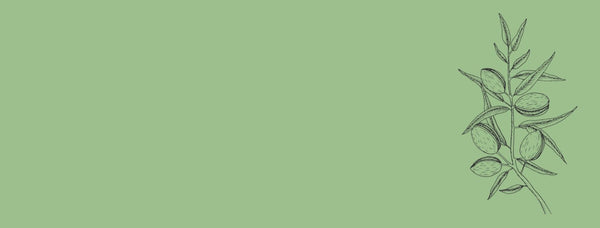Busyness Destroys Our Ability To Think Deep, Be Creative; and Support Our DNA

Busyness is killing our ability think deeply to solve some of the profound problems we face in the world, and to develop creative solutions to those problems. This same habit is also altering our cell’s ability to communicate effectively with our genetic blueprints, so our DNA cannot evolve. Science proves what ancient people didn’t need science to tell them. . . that we’re too harried and hardworking. Busyness, in brief, isn’t all it’s cracked up to be.
Julia Cameron’s call to “fill the well” has been heard by countless artists, playwrights, composers, musicians, and creative types who have read her book, The Artist’s Way. She posits that we fill the well by doing fun, idle, or simple things which give us space to be with ourselves.
Miles Davis, arguably one of the greatest icons of jazz music often said that space was just as important as the notes a musician uses to fill the soundless void.
Ralph Waldo Emerson was known to wander through the forest with no particular aim or goal often, only to become inspired by something he observed, which later became the foundation for his world-renown poetry.
Some of the most awe-inspiring artists know how to leave negative space on a canvas, to draw our focus to the shapes, or pigment that is there.
Cameron argues that we need an inner reservoir to draw from if we are going to continue to create. Davis knew that endless musical notes, no matter how perfectly arranged, lacked soul and musicality if there was not enough space between them, and Emerson was well aware that “doing nothing” is far more important than most of the “somethings” we busy ourselves with on a day-to-day basis.
You don’t end up healing thousands of “broken” creative artists, leading the Transcendentalist movement, or being one of the most inspiring poets of all time, respectively, by constantly staying busy.
Interestingly, we also know through the work of Bruce Lipton, cell biologist and epigeneticist, that our cell nucleus, once thought to be the genetic brain, but really only the reproductive center, like the human gonad, is affected by environment. If we are constantly busy and stressed, the cell cannot get the signals they need to form correctly — even transcendental — if they are bombarded with a “busy” message.
There is a valuable lesson these contemporary mystics can teach us, which ancient people didn’t need to be taught. The secret to achieving life-changing success is in doing less, not doing more. In our world today, even things that were once relaxing and ceremonious are rushed and hurried. We even eat too fast.
To further articulate Cameron’s take on this issue, she says that our creative reservoir or “well” is a creative ecosystem that we need to care for. She points out that, “If we don’t give some attention to upkeep, our well is apt to become depleted, stagnant, or blocked.”
Recent research backs Cameron’s claims. Creativity takes a major hit when we’re constantly busy. Being able to switch between focus and daydreaming is an important skill that’s reduced by insufferable busyness. As Stanford’s Emma Seppälä writes:
“The idea is to balance linear thinking—which requires intense focus—with creative thinking, which is borne out of idleness. Switching between the two modes seems to be the optimal way to do good, inventive work.”
Neuroscience is finding the same to be true. Neuroscientist Daniel Levitin writes in The Organized Mind, that information overload keeps us mired in noise. Our brains are withstanding insufferable music to put it in Miles Davis’ terms. Americans might be suffering from this noise the most poignantly. They consume five thousand times as much as information today as they did 25 years ago. Outside of a traditional work environment even, we process more than 100,000 words daily.
This constant need to be “on” saps us of our will and our creativity. Forced into a constant linear, left-brained algorithm, the central executive of our brains – responsible for focus and attention – never gets to rest. Our mind’s creative abilities, which it defaults to when we are relaxed and daydreaming, is essentially told to “shut up.”
Levitin, who used to engineer records for the Grateful Dead and Santana wrote,
“Artists recontextualize reality and offer visions that were previously invisible. Creativity engages the brain’s daydreaming mode directly and stimulates the free flow and association of ideas, forging links between concepts and neural modes that might not otherwise be made.”
Staring off into space, meditating, listening to music, laying around, doing nothing, meandering through a forest, or engaging in a fun, “mindless” activity that allows our left-brain and high-alert nervous systems to take a break is essential to come up with novel new ideas, and creative ways of approaching life. Altering our DNA to experience more profound states, also requires silence.
Being constantly stimulated with noise, information, and the push to “achieve” more, we become brain-fatigued and irritable. These are signs that our creative minds long to express themselves, but cannot.
How important is doing nothing? Consider that some of the most magnificent minds stumbled on insights while being “lazy.” Nikola Tesla had an a-ha moment about rotating magnetic fields on a leisurely walk in Budapest, and Albert Einstein liked to relax and listen to Mozart on breaks from intense, critical, left-brained-dominate thinking sessions.
Don’t just sit there, do nothing. Give yourself a break from the noise, the chaos, and the impetus to constantly do more and be more. Your next dramatic break-through or deep insight is just waiting to arise once you let your brain relax.
How do you disconnect?
– Take a walk in nature without your cell phone.
– Eliminate unnecessary communication, and make your conversations more authentic, if less frequent.
– Listen to music without words. It allows your brain to reset.
– Ask yourself how much of your “work” is busywork, and eliminate what isn’t truly needed.
– Meditate
– Sit around without the television, any electronics, and any company. Just be with the quiet and yourself.











